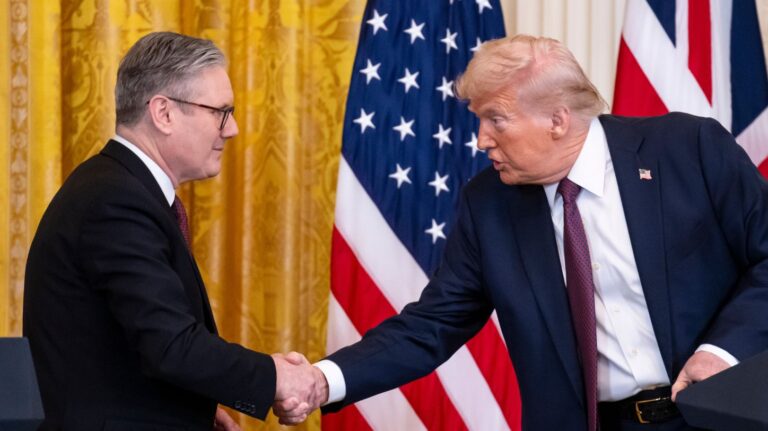On 8 May 2025, UK prime minister Sir Keir Starmer joined US president Donald Trump over the phone, announcing together that a new trade deal has been agreed between the two countries, reducing tariffs and increasing market access for some industries in the UK and US.
Despite an earlier claim from president Trump that the deal was “full and comprehensive”, he told members of the press gathered in the Oval Office that the “final details are being written up”, with Peter Mandelson, UK ambassador to the United States of America, saying it is “not the end”, in fact “just the beginning”.
Both Trump and Starmer described the deal as “historic”, with Starmer claiming that it is “going to boost trade between and across our countries”.
He went on to say the deal is built on “notions of fairness and reciprocal arrangements”, and is “hugely important for sectors like car manufacturing, and steel and aluminium, and so many others”.
Following his phone call with the US president, Starmer held a press conference, during which he said: “We have agreed the basis of a historic economic prosperity deal, and that is a deal that will protect British businesses and save thousands of jobs in Britain.”
He confirmed that the deal would remove tariffs on British steel and aluminium, reducing them from 25% to zero.
READ MORE: British Steel to consult on closure of Scunthorpe facilities, affecting thousands of jobs
He said it would also “provide vital assurances for our life sciences sector […] and grant unprecedented market access for British farmers, without compromising our high standards”. In what the UK Department for Business and Trade describes as ‘a win for both nations’, the UK and US have agreed new reciprocal market access on beef – with UK farmers given a tariff-free quota for 13,000 metric tonnes.
The deal is also set to benefit the UK automotive sector, with US tariffs on cars from the UK to be cut from 27.5% to 10%, applying to a quota of 100,000 UK cars. According to the Office for National Statistics, the US was the UK’s largest export partner for cars, with £9 billion making up 27.4% of total UK car exports.
Furthermore, it will result in the removal of the UK tariff on US ethanol from 19% to zero. Starmer said that these tariff cuts “will come into place as soon as possible”.
Commenting on the announcement, Jonathan Reynolds MP, UK secretary of state for the Department for Business and Trade, said: “I am delighted our calm approach and proactive engagement with the US has resulted in this deal which cuts tariffs for UK industry and cuts costs for businesses.
“Businesses across the country will be glad to see our approach working, but this is only the beginning. We look forward to strengthening our trading relationship with the US through a wider economic deal, which will help us to deliver on our Plan for Change to provide economic stability and make this country fit for the future.”
Starmer ended his press conference by claiming that “Britain is open for business,” and noting that his government will be meeting with the EU to discuss trade in the coming weeks. This comes after a new trade deal between the UK and India was announced earlier this week.
Speaking on the recently announced UK-US trade deal, Nichola Mallon, head of trade and devolved policy at business group Logistics UK, commented: “The logistics sector will be intrinsic to delivering the boost to trade that has been promised from the US-UK trade deal – our members will welcome the fact that a deal has been negotiated.
“We will be scrutinising the detail of the agreement in the coming weeks to identify the opportunities for growth that the deal should bring. After so much discussion and uncertainty around our trading relationship with the US, our members will appreciate the clarity and greater certainty that the agreement should provide.
“Businesses have been unsettled by the lack of clarity and consistency provided for traders since tariffs were announced: hopefully the agreement will lead to a period of greater stability.”







